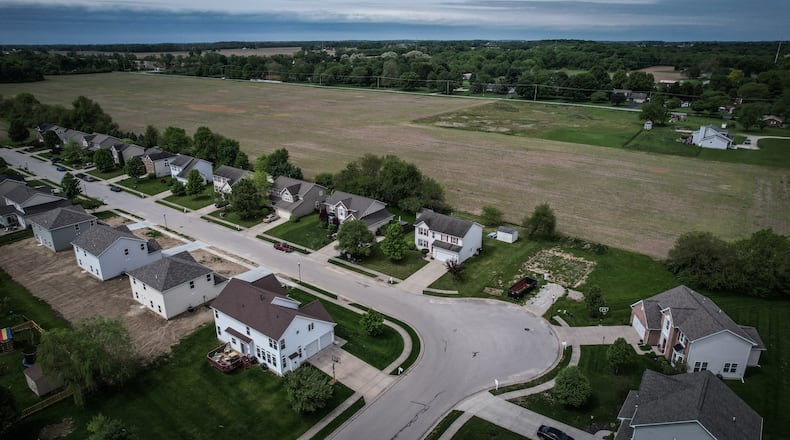The informal review period has ended now that the Ohio Department of Taxation has signed off on historic value increases. Montgomery County saw an average increase of 34% in residential property value countywide; for Greene County, this average increase was 30% countywide.
But residents who think their taxable home values are wrong in Montgomery or Greene counties can still file formal appeals.
Between Jan. 1 and April 1, property owners can file appeals with the Board of Revision if they disagree with their new value. People filing complaints about their values in this formal process are tasked with providing evidence for their proposed value change.
The Board of Revision consists of representatives from county offices of the auditor, treasurer and commission. It can make decisions about the value of a property, not the tax bill of a property owner.
Montgomery County property owners will know exactly how their taxes will change when they receive their first-half 2024 tax bills in January, according to Auditor Karl Keith.
Greene County residents of some taxing districts can calculate the tax impact of their value change on the auditor’s website. Greene County residents can also check their final values online.
Montgomery County property owners will be mailed a notice about their final value, but they can also look-up their final new property value online. For many property owners, this final value will be the same as the tentative value they received notice of over the summer, Keith said.
The Greene County Auditor’s Office had 1,000 scheduled reviews during its informal review period.
Greene County Auditor David Graham noted his office also handled a number of reviews for walk-ins and call-ins aside from the total scheduled appointments.
Graham said his office’s tracking software system does not specifically document which properties saw a decrease in value following an informal review. A number of property owners, too, made appointments not to challenge their value but to ask questions about the valuation process.
Disagree with your final value? Here’s are possible next steps:
- By the end of the year, residents should receive letters from their county auditor’s office with their final, updated property value or be able to view their property value online.
- Beginning in January, auditor’s offices will begin their formal appeal process. Property owners who wish to appeal their final value can file a complaint to their Board of Revision. This complaint form can be found on the Greene and Montgomery County auditor’s websites.
- Property owners filing an appeal must also submit evidence supporting their value claim. This includes documents like appraisal reports, purchase and lease agreements, construction costs, closing statements and other documents related to income and expenses. They can submit evidence online.
- Property owners can schedule a hearing with the Board of Revision via Zoom or a telephone conference from January through the beginning of April.
- The Board of Revision will make a decision about the property’s value after looking over evidence submitted by the appellant. Boards of Revision can only hear complaints regarding property value, not tax amounts. This decision will also be mailed to the property owner.
About the Author

